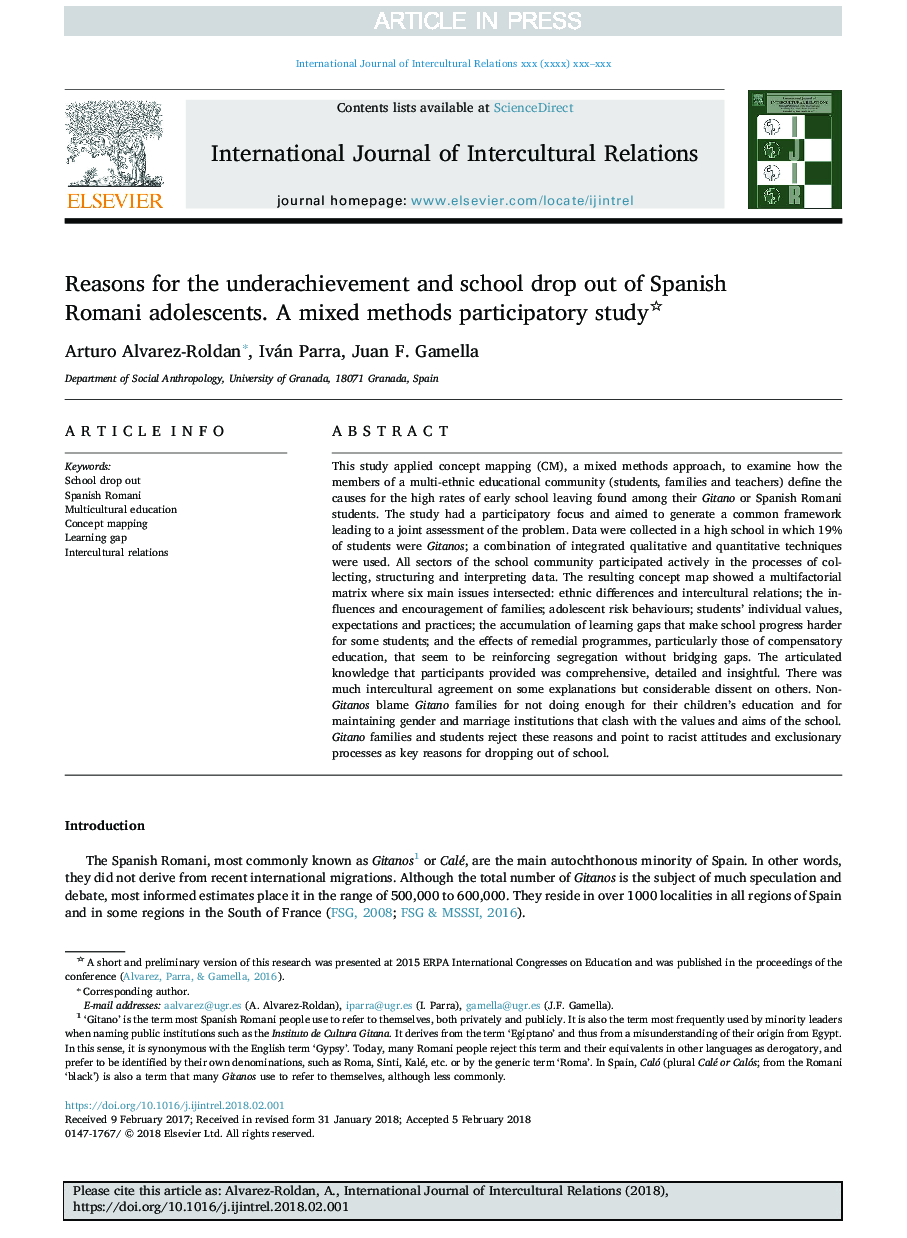| Article ID | Journal | Published Year | Pages | File Type |
|---|---|---|---|---|
| 7323644 | International Journal of Intercultural Relations | 2018 | 15 Pages |
Abstract
This study applied concept mapping (CM), a mixed methods approach, to examine how the members of a multi-ethnic educational community (students, families and teachers) define the causes for the high rates of early school leaving found among their Gitano or Spanish Romani students. The study had a participatory focus and aimed to generate a common framework leading to a joint assessment of the problem. Data were collected in a high school in which 19% of students were Gitanos; a combination of integrated qualitative and quantitative techniques were used. All sectors of the school community participated actively in the processes of collecting, structuring and interpreting data. The resulting concept map showed a multifactorial matrix where six main issues intersected: ethnic differences and intercultural relations; the influences and encouragement of families; adolescent risk behaviours; students' individual values, expectations and practices; the accumulation of learning gaps that make school progress harder for some students; and the effects of remedial programmes, particularly those of compensatory education, that seem to be reinforcing segregation without bridging gaps. The articulated knowledge that participants provided was comprehensive, detailed and insightful. There was much intercultural agreement on some explanations but considerable dissent on others. Non-Gitanos blame Gitano families for not doing enough for their children's education and for maintaining gender and marriage institutions that clash with the values and aims of the school. Gitano families and students reject these reasons and point to racist attitudes and exclusionary processes as key reasons for dropping out of school.
Related Topics
Social Sciences and Humanities
Business, Management and Accounting
Business and International Management
Authors
Arturo Alvarez-Roldan, Iván Parra, Juan F. Gamella,
